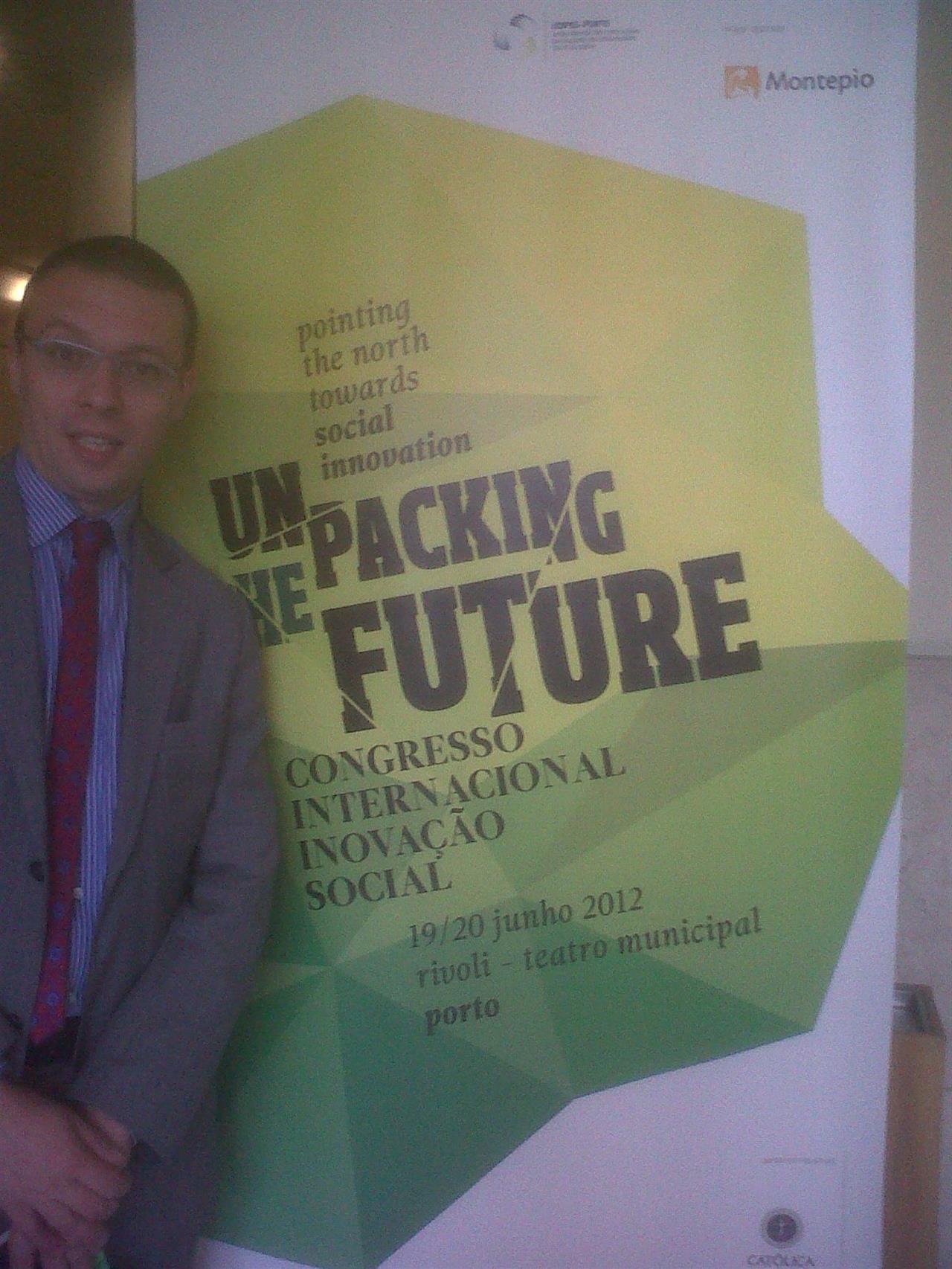
What’s the place of values in the innovation strategy of the European Union? Reading the Innovation Union Flagship Initiative you won’t find an answer except for the usual mantra: “We need more growth, more jobs and to keep an eye on sustainability and social cohesion”.
Barroso repeated the message in Rio this week but didn’t give any detail expect for the budget which is not insignificant. But my experience with projects – like the ones in Naples and Athens – tells me the opposite. It’s all about the fine details and what kind of society we want, not the budget. On the contrary, fundraising is the easiest part of the job. Investing money with a triple bottom return – financial, social and environmental – is the real challenge.
Leaving funding issue aside, it’s the question of values which has kept me busy this week.
I’ve been encountering this question for a long time but have always ignored it. Innovation seems good per se and doesn’t need any justification. Our society is buttressed by innovation. I’m a natural born innovator and the opposite is counterintuitive to me.
However, there are some voices of people I respect which deserve attention. For instance, Prof David Lane (European Center for Living Technologies) presents the case of such an attitude as ‘Innovation Society’. In his view Innovation is our contemporary ideology and is as dangerous as any other ideology that runs counter to the normalised set of believes of how best society should function and be managed.
Innovation is intertwined with our daily lives although we don’t necessarily see or realise where it is taking place. We take it for granted but shouldn’t. Without the products, tools and services that derived from social innovation I couldn’t share my thoughts here and you could not as accessibly read this text. We can because such tools as computer, internet and blog exist. Innovation is the unifying characteristic of the contemporary condition throughout the world.
The first time I had to act on this question I was in Gdynia (Poland) at a workshop of Social Innovation Europe. The call came when Yvonne Roberts (The Observer) asked Geoff Mulgan (NESTA): ‘What’s the ‘why’ in innovation?’ Despite being one of the first advocates of social innovation in Brussels, Geoff skipped the question.
The answer seems easy when we think about internet and vaccines. But most of the inventions are pretty futile. They exist to sell, not meet needs. They might increase the GDP but not the real economy. Actually Prof Lane argues that the Innovation Society generates new needs to sell products as in the case of new diseases invented to sell drugs produced initially with a different purpose. It is a question of doing innovation right, or the right innovation?
We as a society spend quite a lot of resources to invent and consume products and services although we don’t really need them. Do we need all the processed food that makes us unhealthy? the reality TV shows that make us stupid? or consumer products which make us poor? I doubt we are happier because of them.
So, it’s time to pose and ask which innovation we really want, we really need. Here again is the question of values. In the middle of a crisis which is economic – but not just economic- we can’t avoid addressing his pressing question.
The opportunity came this week that I spent in Porto. We had Euclid Network board awayday and Carlos Azevedo, new board member and CEO of UDIPSS, the city umbrella body of public service providers, hosted a Congress on social innovation: Unpacking the Future.
300 leaders and practitioners from the nonprofit sector – in Portugal called ‘misericordias’ and often inspired by the Catholic tradition – took part, including the usual stakeholders and government. It was quite an exciting event with a general call for innovation. The message was: ‘The crisis is crack and we must to rise to the emerging social challenge’.
At the same time, the call was complemented by a reminder of our shared history. The message was heralded by Monsignor Dal Toso, Secretary General of Cor Unum, the Vatican Ministry in charge of Catholic NGOs in the world. We can’t forget where we come from. We don’t start from scratch. Europe is not the Silicon Valley. On the contrary, we must build on centuries of tradition.
No revolution has been able to wipe out the past. Even the Communist China has recently rediscovered its tradition despite the Cultural Revolution. How can we dare think that Europe could escape its past? Actually, that was the ambition of ideologies such as Nazism and Communism. They didn’t do a great job. So it would be better doing a reality check to realise that in Europe we can innovate within our traditional frameworks; more precisely, within our diverse traditions, both national and regional.
Perhaps such considerations – where we came from and our stand on where we want to go – indicate the right direction to re-build an effective Europe.
Vuoi accedere all'archivio di VITA?
Con un abbonamento annuale potrai sfogliare più di 50 numeri del nostro magazine, da gennaio 2020 ad oggi: ogni numero una storia sempre attuale. Oltre a tutti i contenuti extra come le newsletter tematiche, i podcast, le infografiche e gli approfondimenti.

